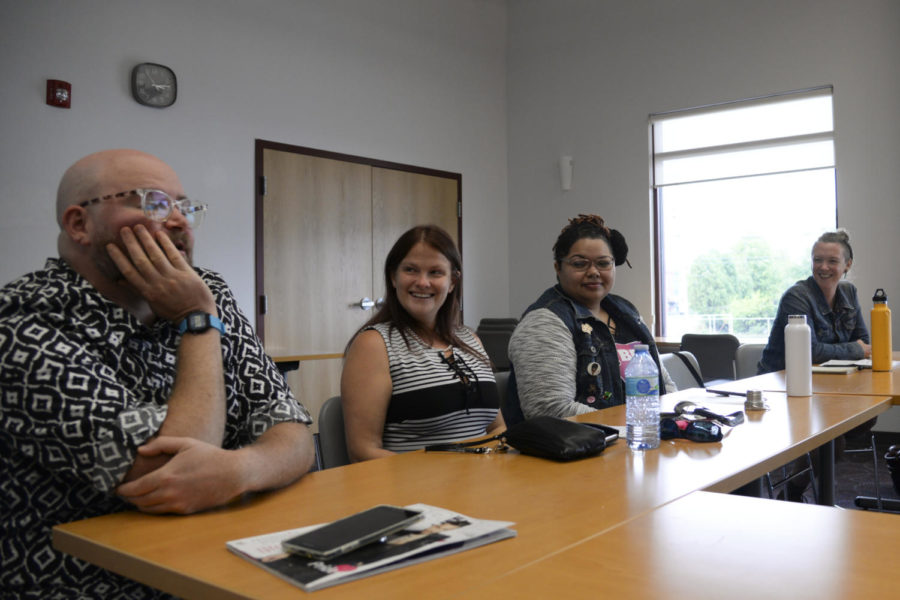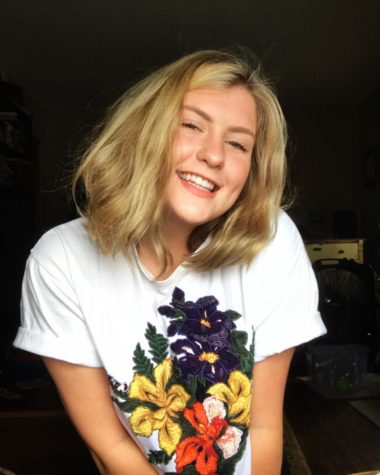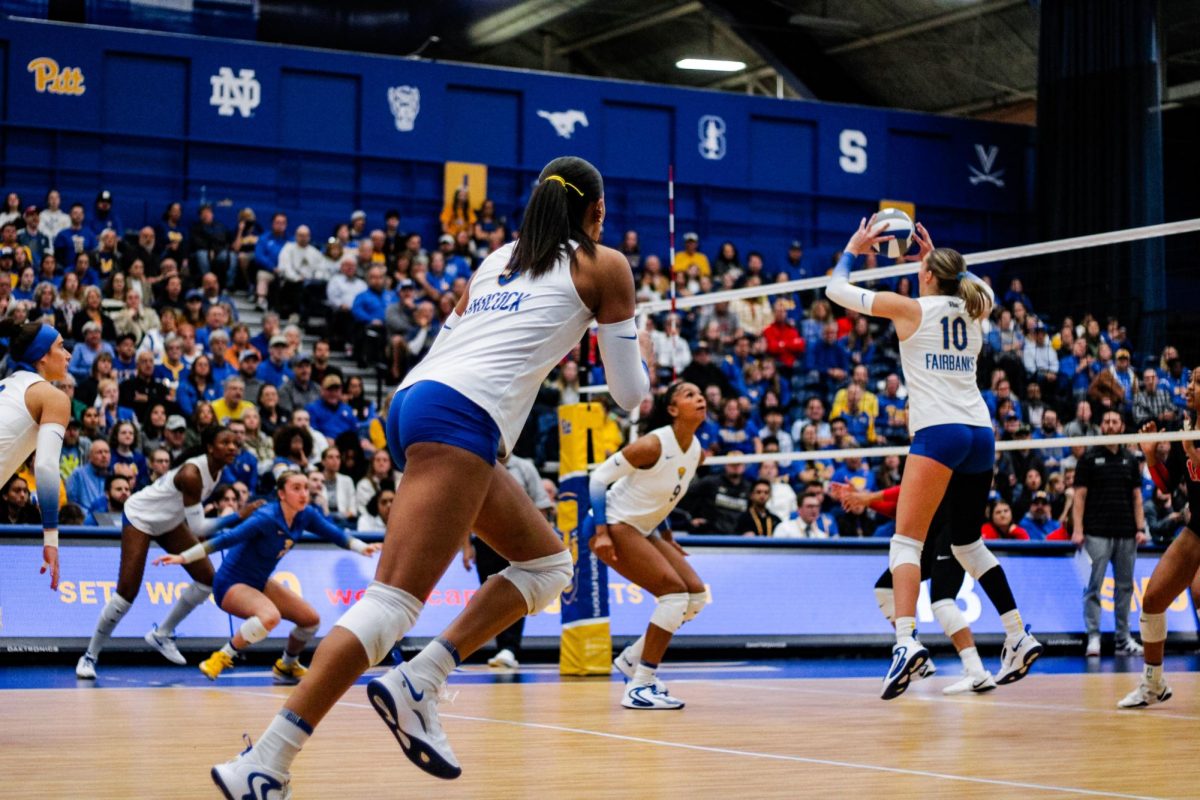BiPgh hosts Pittsburgh’s first Bi Visibility Day conference
Elise Lavallee | Contributing Editor
(From left) fAe gibson, Gabrielle Monroe, Morgan Hawkins and Meredith Maloney speak about coming out, gender identity, language and labeling during a panel at the Bi-Visibility Conference.
September 24, 2018
Lyndsey Sickler, co-founder of BiPgh and the Youth Programs Coordinator at the Persad Center, spent the last eight months planning Pittsburgh’s first Bisexual Visibility Day Conference. The crowd at the Persad Center on Sunday was the payoff for Sickler.
“I’m really thrilled with the turnout today,” Sickler said. “Even if you only have a handful of people coming, it’s about getting it together and getting it started, and then creating consistency around whatever it is you’re trying to manifest.”
The event, hosted by BiPgh, took place Sept. 23 from 9 a.m to 5 p.m at the Persad Center in Lawrenceville. The Persad Center, founded in 1972, is a licensed counseling and well-being center specifically created to serve the LGBTQ+ community.
The conference consisted of various panels and workshops, starting with a panel about BiPgh — a volunteer-run social and support group for bisexual, bi-curious and bi-supporting individuals in the Pittsburgh area. In addition to holding community events of their own, BiPgh also hosts a blog.
“Having welcoming events like this conference, making sure people know about what we’re doing and getting the word out to other organizations that we exist is important, because the bi population doesn’t get enough attention here,” Sickler said.
Nearly all of the panels discussed defining and deconstructing misconceptions about bisexuality. Meredith Maloney of Fair Moans, a sex-positive collective based in Pittsburgh looking to educate individuals and make conversations about sexuality more prevalent, moderated a panel on bisexual identity.
Panelists Morgan Hawkins, Gabrielle Monroe and fAe gibson, all self-identified members of Pittsburgh’s bisexual community, answered Maloney’s questions about their personal experiences with coming out, gender identity, language and labeling.
Hawkins, the president of Renaissance City Choir’s board of directors, came out via Facebook a few years ago. She remembers bisexuality as a growing topic of conversation at the time, but even those within the community were in conflict about what bisexuality meant.
“Pansexuality was really getting a lot more attention as well,” Hawkins said. “There was a push and pull — ‘I’m not bisexual anymore, I’m pansexual because it’s better, more enlightened, more inclusive.’”
Hawkins said the term bisexuality encompassed everything she identified as, but recognizes how some people can see the need to label themselves differently.
gibson, a queer transgender man and subject of the documentary “Gender Redesigner” which captures gibson’s experience during transition, embraces room for interpretation within all the terms. gibson styles his name as such in all settings, from personal interactions to published works.
“There are a lot of different genders and a lot of different sexualities and the ability to be inclusive is important,” gibson said. “For me, sexuality is always unfolding, and I don’t want to exclude anyone from my future self.”
Monroe, a sex worker and sex work advocate and activist, also identifies as bisexual.
“I love finding new things and new emotions. From one attraction to another, to another, it doesn’t necessarily have to do with gender,” Monroe said. “In fact, I don’t think it has anything to do with gender for me anymore.”
Following the Fair Moans panel, Diane Anderson, LGBTQ+ activist, mother and self-identified African American, Jewish, bisexual woman, and who is married to a trans man, hosted a discussion on intersectional survival.
“I know what it’s like to not be taken seriously, as a woman, as a person of color, as someone who identifies as gay,” Anderson said. “It’s sad to think you can lose relationships with friends and family because of who you are.”
Anderson told attendees about her experience being kicked out of her home and denied the opportunity to raise her son by her ex-husband on the basis of her sexual identity. She also talked about how her choosing to come out as bisexual affected her daughter’s life.
“Surviving is something on its own,” Anderson said in closing. “Everything I’ve been through has lead me to this point. Life is traumatic, but it’s also wonderful.”
gibson said that events like Sunday’s conference are important for bringing people with similar insights and experiences together to deliberate how to present bi visibility in the future.
“People who identify as straight or who identify as gay have trouble thinking that people can be both,” gibson said. “They think, ‘You have to pick one,’ and will strip bi individuals, especially those in relationships, of their bi identities.”
gibson said things are getting better, but there is still more progress to be made.
“As a society, America has a lot of work to do in terms of how they treat people. I think we’re seeing steps being taken toward being OK with others,” gibson said. “You know, people that are other than yourself. Genders that are other than yours, sexualities that are other than yours. It’s just going to take more time, more discussion, more marches.”




